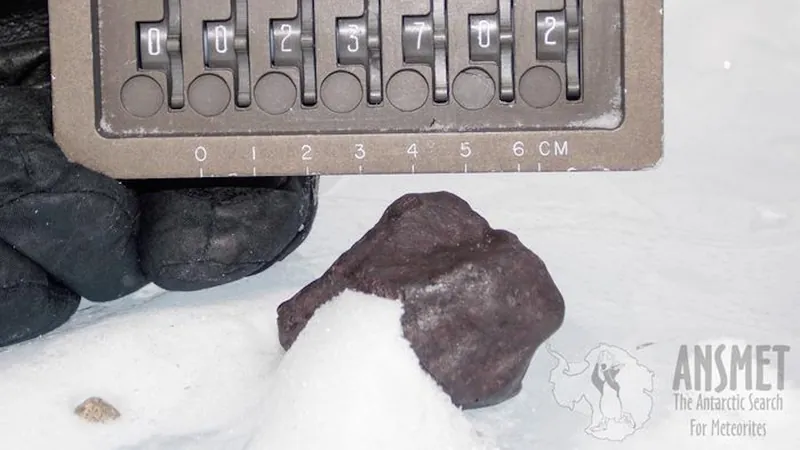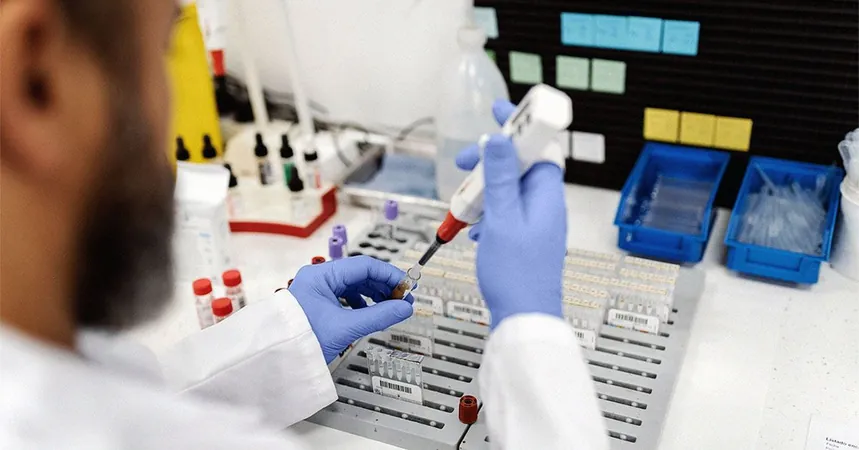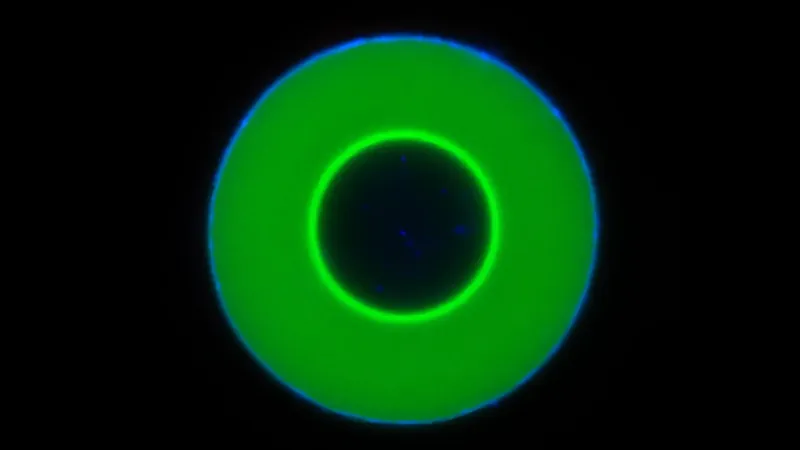
Is Earth’s Water Origin Story About to Change? Shocking Meteorite Discovery Revealed!
2025-05-05
Author: Yu
A Groundbreaking Discovery in Meteorite Research
A recent study has stirred the scientific community by challenging long-held beliefs about how Earth acquired its water. Researchers have uncovered intriguing chemical signatures in a meteorite that suggests Earth might have formed with the building blocks for water, rather than relying solely on collisions with icy space objects.
The Surprising Evidence
Published on April 16 in the journal *Icarus*, the study focuses on hydrogen sulfide found within an enstatite chondrite meteorite, a type that is believed to represent the core materials of our planet's early formation. Unlike previously thought, if these meteorites carry significant amounts of hydrogen out in space, it could mean that the raw materials necessary for water formation were present before Earth's collisions with asteroids and comets.
Traditionally, scientists believed that Earth's water primarily came from outer solar system objects. However, this claim is complicated by the unique gravitational influences in our solar system, particularly from Jupiter, which affects the trajectory of comets and other celestial bodies.
What the Findings Mean
A 2020 study hinted that enstatite chondrites might not contain water, but they do have hydrogen. This presents a fascinating theory: if hydrogen from these meteorites interacted with oxygen on early Earth, it could have generated the massive quantities of water we know today. Study co-author James Bryson from the University of Oxford emphasized that the newly discovered hydrogen, significantly present as hydrogen sulfide in the meteorite matrix, is promising evidence that hydrogen was likely available since the formation of our planet.
Broader Implications for Habitability
These findings have broader implications beyond Earth; they suggest that rocky planets in our solar system—and potentially beyond—might form with the necessary hydrogen to create habitable environments. Bryson noted, "This means habitable conditions could be far more likely than we originally thought!" The prospect of discovering more planets with water-forming conditions opens up exciting avenues in the search for extraterrestrial life.
Skepticism Among Experts
Despite the groundbreaking nature of these findings, some scientists remain skeptical. Conel Alexander, a meteoriticist at the Carnegie Institution for Science, has raised concerns about possible contamination of the meteorite samples. He explains that upon entering Earth's atmosphere, meteorites can react with existing water and oxygen, complicating results.
To conclusively determine the source of the hydrogen, Alexander suggests a fresh enstatite chondrite sample should ideally be collected immediately after landing, preserved in a controlled environment, free from any potential contamination. Such a sample could dramatically clarify the origins of Earth's water.



 Brasil (PT)
Brasil (PT)
 Canada (EN)
Canada (EN)
 Chile (ES)
Chile (ES)
 Česko (CS)
Česko (CS)
 대한민국 (KO)
대한민국 (KO)
 España (ES)
España (ES)
 France (FR)
France (FR)
 Hong Kong (EN)
Hong Kong (EN)
 Italia (IT)
Italia (IT)
 日本 (JA)
日本 (JA)
 Magyarország (HU)
Magyarország (HU)
 Norge (NO)
Norge (NO)
 Polska (PL)
Polska (PL)
 Schweiz (DE)
Schweiz (DE)
 Singapore (EN)
Singapore (EN)
 Sverige (SV)
Sverige (SV)
 Suomi (FI)
Suomi (FI)
 Türkiye (TR)
Türkiye (TR)
 الإمارات العربية المتحدة (AR)
الإمارات العربية المتحدة (AR)